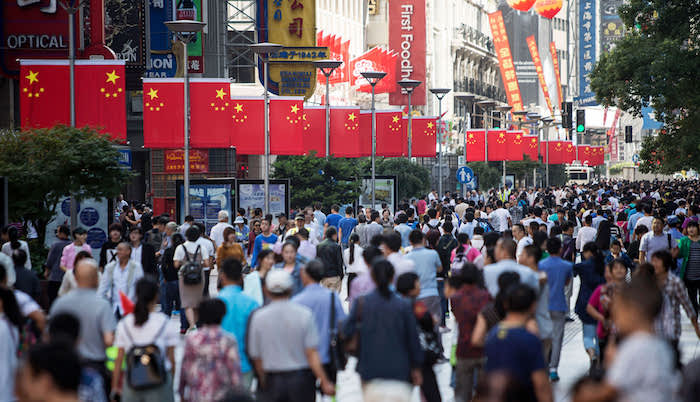China’s slowdown is being fueled by tight Covid controls and a crisis in the housing industry, according to the International Monetary Fund, which on Tuesday lowered its GDP predictions for this year and 2023.
The International Monetary Fund lowered its prediction for China’s GDP growth this year from 3.3 percent to 3.2 percent in its most recent quarterly global forecast, released in August.
According to official and World Bank statistics, that would be the slowest growth in the country in the past four decades, excluding the year of the pandemic.
Growth is expected to increase to 4.4% in 2019, the IMF stated, which is down from its earlier projection of 4.6%.
Both numbers are far lower than Beijing’s stated GDP growth target for this year of roughly 5.5 percent, which many analysts now say is unrealistic.
Although China’s GDP grew by 8.1% in 2018, this was from a lower base year due to the impact of viral lockdowns in 2020.
However, unlike many countries that have rushed to reopen as the public health threat from the virus has decreased, the world’s most populous nation has kept to a policy of eradicating new epidemics as they occur.
The zero-Covid approach, characterized by sudden lockdowns, widespread testing, and extended quarantines, has “had a toll on the economy, especially in the second quarter of 2022,” as stated by the International Monetary Fund in its World Economic Outlook report.
The “rapidly declining” real estate industry accounts for almost a quarter of yearly GDP, so its implosion “would weigh hard on global trade and activity,” the Washington-based institute warned.
It cautioned that a deteriorating crisis in China’s property sector might spread to the domestic banking sector, stifle the country’s economic growth, and have far-reaching effects.
Russia’s war in Ukraine and global supply chain bottlenecks have pushed up prices around the world, which has contributed to a worldwide economic slowdown as central banks around the world raise interest rates to combat these rising prices.
Beijing has lowered key interest rates and pumped cash into the financial sector in an effort to stimulate development in recent months. However, onlookers claim that the effects do little to counteract the measures used to prevent escape.
Growth numbers for China’s third quarter and other economic data are expected to be released this month.
The country’s growth slowed to 0.4% in the three months ending in June, its lowest showing since the beginning of the pandemic.
